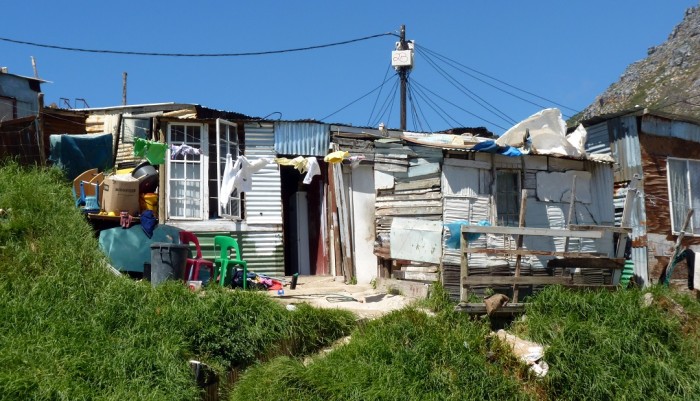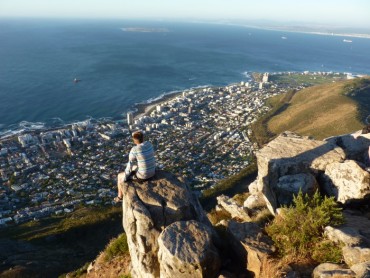People often ask me what is my favourite destination and what is the most memorable thing I’ve ever done. Luckily for me, answers to both questions are in the same location. Working with great white sharks in South Africa.
“South Africa? But isn’t it very dangerous there?” is usually their first reaction.
Few days ago my geography teacher from elementary school told me that she went there with a tourist agency and their guides didn’t let them off of the bus in townships and some other areas of the city. Amongst others, this is one of the reasons I don’t travel with agencies anymore, they over exaggerate…
I went to Cape Town for five weeks to work with a volunteering organization called Aviva. First I stayed with Aviva in Cape Town for a week, then went to Gansbaai to work on a project with Marine Dynamics and returned to Cape Town for another two weeks to travel some more…
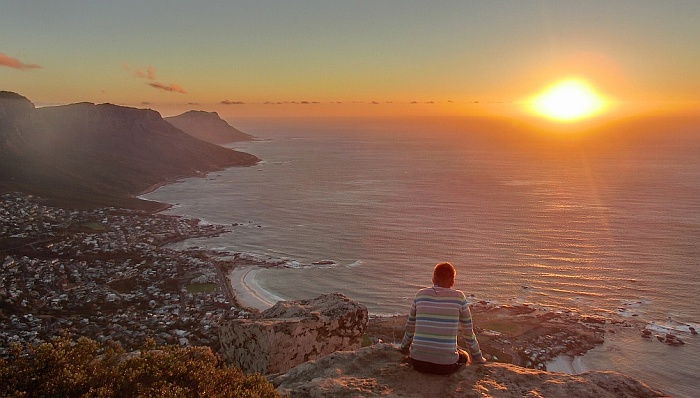
View on Cape Town from Lions Head
My new friends and I were walking around Cape Town on our own all the time. Although you can see signs “Stash it, don’t flash it” all over the city, we always felt safe. Partying by night or walking around townships by day, we never had any problems. I’m not saying that no incident will ever happen to you, but as long as you are smart and don’t flash your valuables around, you should be fine…
It’s similar with sharks. When I told my family and friends that I’m going to work with great whites, I got similar reactions: “Sharks will bite off your limbs and kill you.”
I always start rolling with my eyes, thinking: “Here we go again. Another person that believes everything they see on TV…”
You are afraid of sharks, I get it, but I did some research before I went there. According to International Shark Attack File (ISAF) in the last 435 years little over 500 people died from a shark attack. On average that’s about one per year. You have to realize that in the end we are the ones who enter into their natural habitat. On the other side people kill about 100,000,000 sharks every year. Yes, one hundred million dead sharks. Every year! So who should be afraid of whom? To comfort you even more, your chance of getting killed by a shark is 1 in 3,700,000…
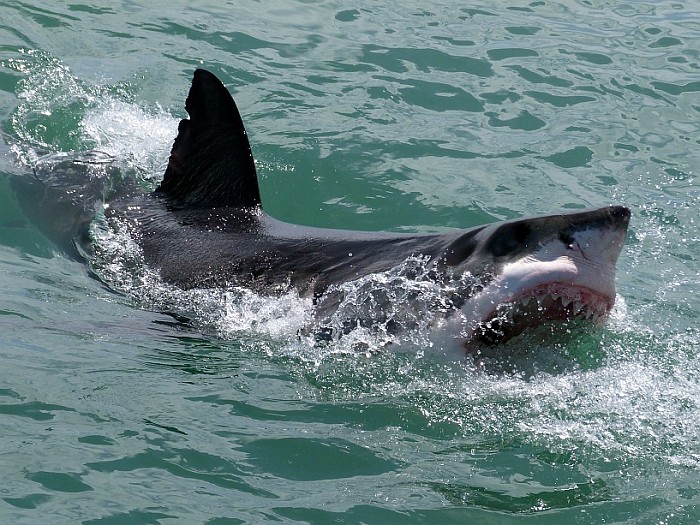
Shark breaching the surface
Scientist were also researching shark’s brain activity – the better they liked the smell, the stronger the activity. The conclusion was that sharks prefer squid and fish much more over human blood which showed barely some activity for a moment.
I believed scientists more than movies and documentaries so I decided to give this project a try. I’ve been into adrenaline sports and extreme stuff ever since I was a kid so this felt like a perfect fit for me. And boy it was…
The main purpose of this project was to raise awareness, educate people and give them an opportunity to meet sharks in their natural environment. Funds, collected from tourists, go to conservation of wildlife. As a volunteer, I had a chance to help and work in a unique marine environment where great white sharks, endangered southern right whales and African penguins, dolphins, seals and sea birds coexist. This way I was able to learn more about these animals so now I can teach others and raise awareness that sharks are not as dangerous as many people think.
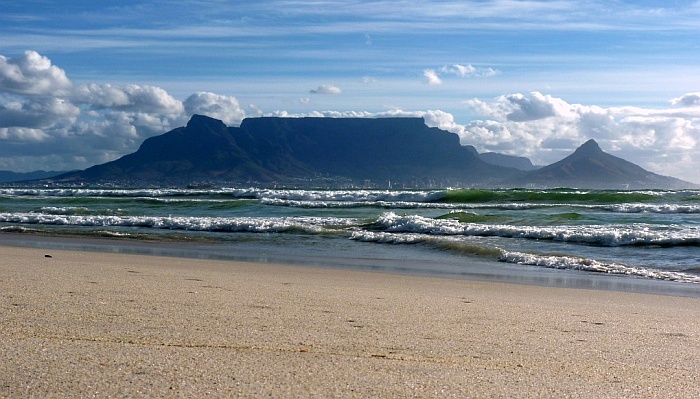
Table Mountain and Lions Head – Cape Town
My daily routine started with a walk through bushes to the main office. There we (me and other volunteers) prepared the boat with food supplies, wet-suits and life jackets and waited for tourists to walk them to the boat. After a short trip out to the sea tourists were given a briefing on how to behave on the boat and in the cage, safety was a very important issue. When sharks appeared each tourist got a chance to dive with them while everybody on a boat was taking pictures and videos. Each trip was unique, pleasant experience full of laughter and joy. I was diving each day for free plus every now and then Marine Dynamics staff took us on different trips like searching for shark eggs or swimming in a river in an underground cave…
I remember the first time I saw a great white shark from a boat, the excitement gave me shivers. On my first cage dive I even touched a shark (I shouldn’t, but don’t tell anyone). What you usually see on TV, is not true. They are not aggressive at all. Instead they move really slowly and gently around the boat. Smaller sharks sometimes breached the surface playfully but most of the time they are calm swimmers that can’t be bothered into moving quickly. Sometimes we had to drop fish blood and oils for over an hour to attract their attention, and this is the best hot spot in the world for Great Whites. So don’t worry, you will not get eaten if you cut yourself on a rock on your vacation.
Recently somebody caught one of the biggest sharks alive on camera near Guadalupe, Mexico. Type in YouTube “Deep blue great white shark seen in Guadalupe” and check how slow the shark swims. There’s also a famous scientist Ocean Ramsey that swims with sharks for research. Without a cage, of course. She’s doing incredible job raising people’s awareness…
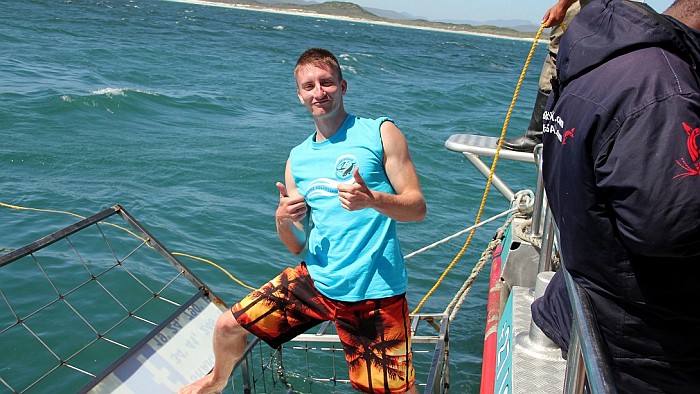
The Cage for diving with sharks is ready
Experience in South Africa taught me a lot and proved me even more that sharks don’t eat humans. And that I shouldn’t believe everything I see on TV or read in newspapers. Of course accidents happen but when they do, sadly injuries are usually very serious because such a big animal has massive jaws with big sharp teeth that do a lot of damage…
Yet I still believe that they don’t attack humans on purpose to eat them. I am so sure that I am willing to go swim with them. This time without a cage…
I understand if you’re not into sharks and so do people at the Aviva. That is why they also created many other projects where you can volunteer with African kids, elephants, penguins…
You can follow my adventures on www.travel-nomad.com.
